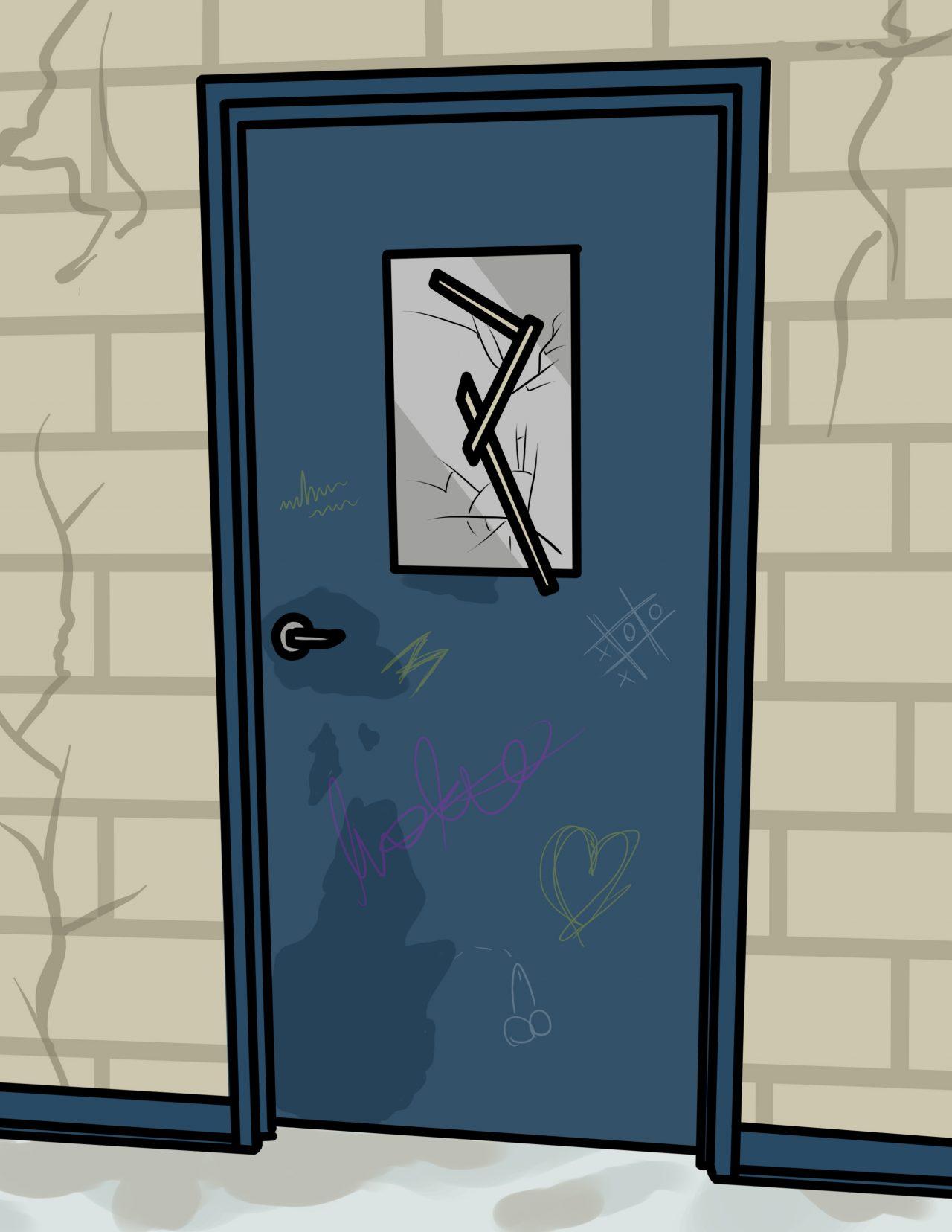Illustration by Andrea Nebhut
Imagine you’re a public school teacher. You most likely wake up every morning at an ungodly hour to go teach at a school with the few resources you are given and the supplies you had to pay for out of pocket. After a long day of class time with classrooms filled to the brim, some of your students even sitting on the floors, you probably spend hours working essentially for free after school so that students have at least one extra-curricular activity. Even after all of that, you probably go to a second or maybe third job in order to make enough money to live on a full-time teacher salary.
Public schools in the United States are grossly underfunded, and most teacher salaries are insultingly low, some as low as $30,000 a year — yet here we are in the middle of a government shutdown because there’s consideration of allocating billions of dollars toward a border wall.
This isn’t to say that public school funding hasn’t been undergoing an enormous crisis for a long time; however, when I see the government talk about setting aside so much money for the unrealistic expectation that a border wall will solve any problems at all, it raises some red flags.
When there’s talk of putting money toward a wall, it seems as though there’s no consideration of the kids going to school for only four days a week because their school district can’t pay for five (implemented in Oklahoma to mixed reactions). There’s no talk of those same kids’ teachers who are only getting paid for four days out of the week, making their salaries even less than they were before.
There’s no consideration of the teachers in many states who are left with no choice but to go on strike because of their near-poverty wages and the poor conditions they must work through in order to earn a small amount of money for a huge amount of work. The Atlantic recently wrote an article introducing Larry Cagle, a 54-year-old public school teacher who makes $34,500 a year and is forced to work in the summer to make ends meet. His story is not unusual in the United States.
Their job is to educate — but they get assigned to random subjects, their classes overflow, their students are stacked on top of one another and they make copies with paper they probably bought themselves of textbook pages that are several years old and have rips all over them because they only have a total of 10 for a classroom of 40.
In no way do I mean to detract from the dedication of these teachers, who do everything in their power to keep these adversarial conditions from affecting their students’ ability to learn. Most of them bend over backwards so their students don’t have to face the consequences of brutal budget cuts. But in some cases, it really is a matter of funding because there’s only so much you can do when your schools are literally falling apart. Melissa Smith, a teacher in Oklahoma, details the conditions of her dilapidated school in a column for the Guardian. Smith wrote everything, from how the school went for several days without air conditioning in August to how the school only has 60 copies of the same out-dated textbook to be shared amongst 600+ freshmen students.
Public schools are not the only things without extremely necessary funds in the U.S. There’s an extensive list of places and programs where all this money could go, so I urge you to — at the very least — be aware of these issues. Again, imagine you are a public school teacher. If your government considered putting unfathomable amounts of money towards a wall, and people actually supported the multi-billion dollar project, wouldn’t you want us to have our priorities straight?






